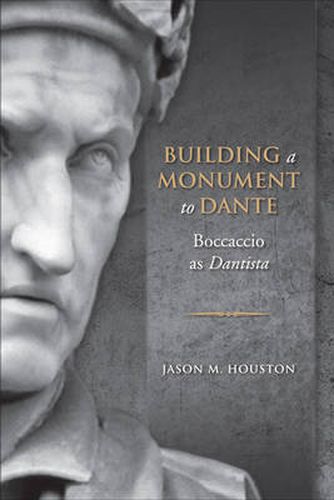Readings Newsletter
Become a Readings Member to make your shopping experience even easier.
Sign in or sign up for free!
You’re not far away from qualifying for FREE standard shipping within Australia
You’ve qualified for FREE standard shipping within Australia
The cart is loading…






The shadow of Dante Alighieri looms large in the works of Giovanni Boccaccio, and yet the full extent of Boccaccio’s relationship to Dante remains largely unexplored. Building a Monument to Dante employs literary analysis coupled with philological and historical evidence to argue that Boccaccio’s multifaceted work as Dante’s editor, biographer, apologist, and commentator created a literary figure that could support Boccaccio’s poetic and political ideologies.
Jason Houston finds in Boccaccio’s biographical writings a strong condemnation of Florentine politics and a harsh critique of Petrarch’s political isolation, distinguishing Boccaccio’s political and intellectual positions from those of both Dante and Petrarch. Reading the Trattatello in Laude di Dante and other writings as works intended to promote Dante as a brilliant political exemplum to the city of Florence, Houston discovers the processes by which Boccaccio constructed an image of Dante that continues to influence the way that readers understand the poet’s life and works.
$9.00 standard shipping within Australia
FREE standard shipping within Australia for orders over $100.00
Express & International shipping calculated at checkout
The shadow of Dante Alighieri looms large in the works of Giovanni Boccaccio, and yet the full extent of Boccaccio’s relationship to Dante remains largely unexplored. Building a Monument to Dante employs literary analysis coupled with philological and historical evidence to argue that Boccaccio’s multifaceted work as Dante’s editor, biographer, apologist, and commentator created a literary figure that could support Boccaccio’s poetic and political ideologies.
Jason Houston finds in Boccaccio’s biographical writings a strong condemnation of Florentine politics and a harsh critique of Petrarch’s political isolation, distinguishing Boccaccio’s political and intellectual positions from those of both Dante and Petrarch. Reading the Trattatello in Laude di Dante and other writings as works intended to promote Dante as a brilliant political exemplum to the city of Florence, Houston discovers the processes by which Boccaccio constructed an image of Dante that continues to influence the way that readers understand the poet’s life and works.